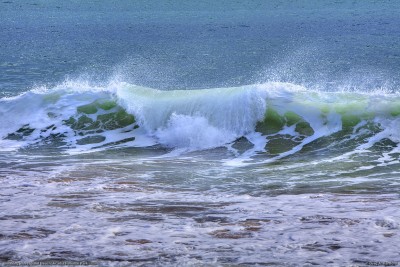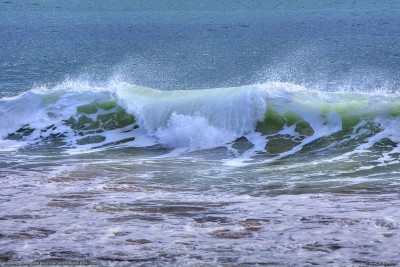 While sea levels are rising, Congress’ ocean IQ is receding.Tuesday’s election gave control of the House of Representatives to the Republican Party and expanded its base in the Senate. And it will likely expand the partisan rancor of an increasingly dysfunctional political system mocked by a quarter-million folks at Comedy Central’s Rally to Restore Sanity last weekend.
While sea levels are rising, Congress’ ocean IQ is receding.Tuesday’s election gave control of the House of Representatives to the Republican Party and expanded its base in the Senate. And it will likely expand the partisan rancor of an increasingly dysfunctional political system mocked by a quarter-million folks at Comedy Central’s Rally to Restore Sanity last weekend.
But there’s not much humor to be found when you look at the likely effect of the election on the oceans. While ocean and coastal conservation has historically been a bipartisan issue, many moderate Republican House and Senate members who were once key advocates for marine protection — such as Rep. Jim Saxon of New Jersey, Rep. Wayne Gilchrest of Maryland, and Sen. John Chafee of Rhode Island — are no longer there. In their place are anti-government zealots who distrust any regulation by land or by sea.
On the other side of the aisle, some normally progressive Democrats like Rep. Barney Frank (Mass.) have strongly opposed plans to stop overfishing. He follows the lead of commercial fishers in his Massachusetts district who don’t use the same science-based approach to their work as fishers in Alaska and elsewhere.
Oddly, there still may be some modicum of hope among even the most conservative of Republicans. Remember George W. Bush’s blue asterisks? While arguably the worst environmental president in history, he also gave us the nation’s first true ocean wilderness parks, starting with northwest Hawaii’s huge Papahanaumokuakea Marine Monument back in 2006. In January 2009, during his final days in office, he added the Line Islands, Rose Atoll, and Mariana Trench in the Pacific. He did this at the urging of his wife Laura and against the wishes of his vice president Dick Cheney.
In the 112th Congress, expect to see President Obama’s newly established Ocean Council come under attack as another wasteful government bureaucracy. In fact, it’s a (sadly unfunded) attempt to coordinate more than two dozen federal departments and agencies to reduce conflict and redundancy at the national level while sustainably managing the uses of our publicly owned seas through regional initiatives.
The attempt to incorporate an ocean conservation trust fund into a Senate oil-spill response bill — if not passed during the 111th Congress’ lame-duck session this winter — will likely die at the hands of those who want to slash government spending even as private-sector spending has stalled out across the nation.
The new Senate may become even more obdurate when it comes to getting a confirmation vote for the Law of the Sea treaty that has been languishing (at this point more like festering) in that august body for years. While almost all ocean stakeholders from the Pentagon to the shipping industry to Greenpeace think the U.S. needs to be an active player in this U.N. convention that determines global actions on ocean issues, a handful of right-wing senators including James Inhofe (R-Okla.), David Vitter (R-La.), and the Tea Party’s Jim DeMint (R-S.C.) claim it’s an attempt to undermine U.S. sovereignty.
Another problem may be how we as a nation address fossil-fuel-fired climate impacts on our public seas — such as acidification, loss of Arctic sea ice, and sea-level rise — when climate-change denial has become an ideological rather than science-based issue for many Republican office holders. More than half of Tea Party supporters believe global warming poses no problem, while 85 percent of the general public thinks it does, according to a recent New York Times/CBS poll. Not coincidentally, many of the key groups backing Tea Party candidates, such as Americans for Prosperity, are also funded by the oil industry.
Expect Capitol Hill debates over ocean policies and politics to get even more heated in the next few years, not unlike the ocean itself.



